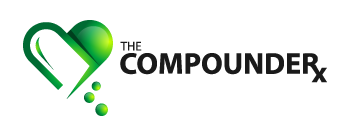 Why will you find this notice on practically every brand of commercial toothpaste?
Why will you find this notice on practically every brand of commercial toothpaste?
“WARNING: Keep out of reach of children under 6 years of age. If you accidentally swallow more than used for brushing, seek professional help or contact a poison control center immediately.”
It is usually a reference to the levels of fluoride in the product. However, if you live in a part of the country where the water is fluoridated, the amount of fluoride found in a glass of water is about the same as that in a pea-sized dollop of toothpaste. The amount of toothpaste swallowed during regular brushing is tiny. The warning label states, “…more than used for brushing.” Clearly, the manufacturer is protecting itself from liability claims that can arise if a child ingests too much, which is easy when you consider how the companies flavor and sweeten toothpaste. Inquisitive children will put all sorts of things into their mouth and toothpaste is definitely worth being inquisitive about.
The liability fear is not about the small part that children ingest during normal brushing, but over larger amounts. Nevertheless, this begs the question of why anyone would knowingly want to have a toxic substance in our house in the first place.
- Toothpaste isn’t sold in special safety dispensing containers.
- It doesn’t have a skull and crossbones on the label.
- It isn’t stored in a safe place, but right on the counter of the bathroom, right by the sink.
- Fluoride is toxic and it shouldn’t be in our water or toothpaste.
However, even if you can find a brand of toothpaste without fluoride, you wouldn’t want your child to eat a glob of it. If it tastes good, a glob could be a substantial amount. Why is that a problem?
Toothpastes contain detergents – the most common is sodium lauryl sulfate. This substance can be the culprit behind the burning mouth, cold sores, and canker sores. Larger amounts can be very irritating to the GI tract.
Toothpastes also contain added glycerin and when swallowed it can cause cramping, upset stomach, and diarrhea. It can also be a diuretic, causing a loss of water from the body. While not a major issue for an adult, diuretics should not be used by young children.
If you agree that it is unwise to use commercial toothpaste, what can you do to clean your mouth and teeth? Simple is best. Ask some older folks and you are likely to learn that they’ve used baking soda for years and rarely have dental problems. That’s a great choice. So is soap. Yes, regular, natural soap. While you could rub your toothbrush on the cake of soap on the sink, there is a better, more appealing way. Use Perfect Prescription Tooth Soap. It is simple to use and the old-fashioned idea about washing your mouth out with soap is nothing more than a fable, passed down for years. Soap does not taste bad unless you get some foam way back on the edges of the tongue. That area detects the bitter soapy taste. Don’t try swallowing the soap bubbles and you’ll not be bothered.
These are safe approaches to a clean mouth. They work extremely well and they are far less costly than any of the commercial kinds of toothpaste.
Our teeth ought to be cleaned a couple of times each day. Consider using Xyliwhite products.
